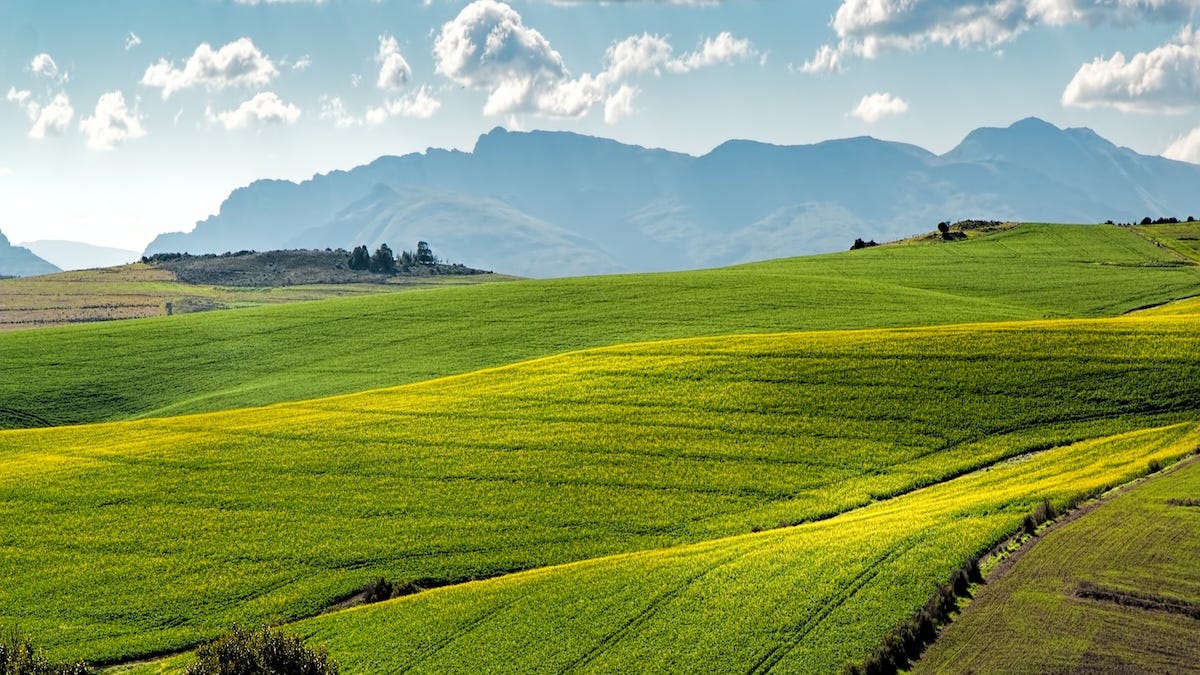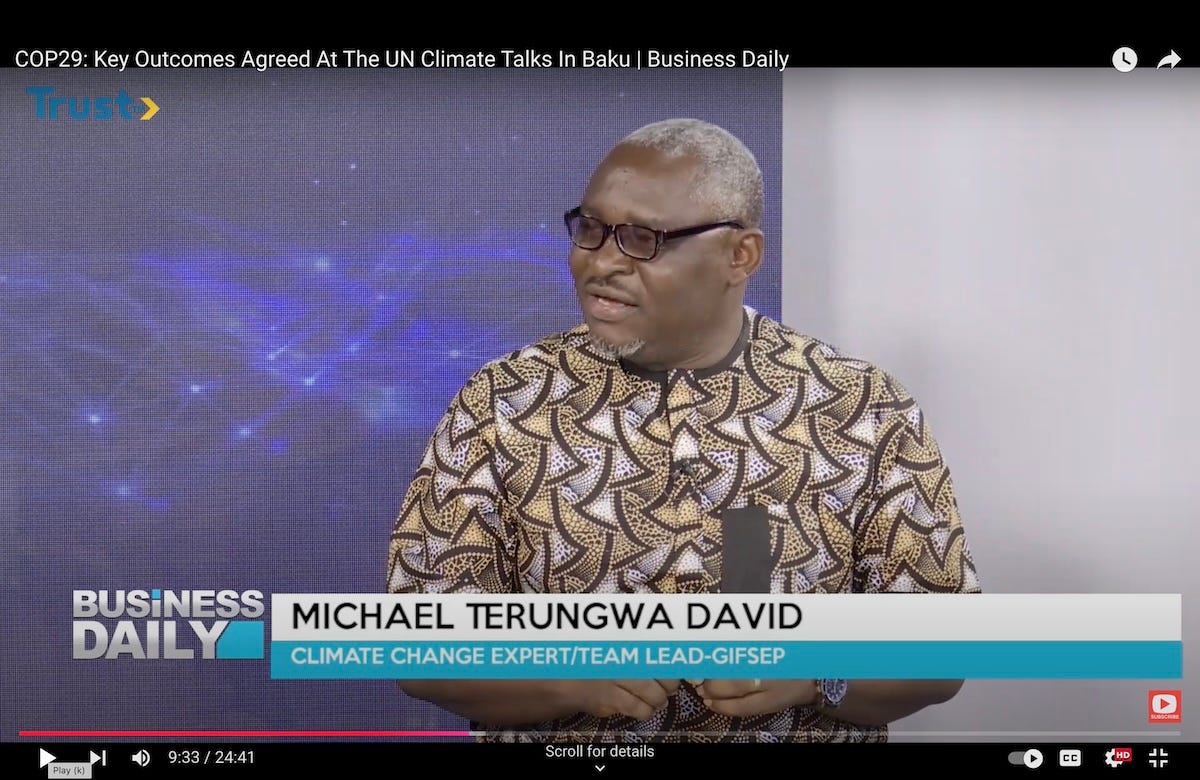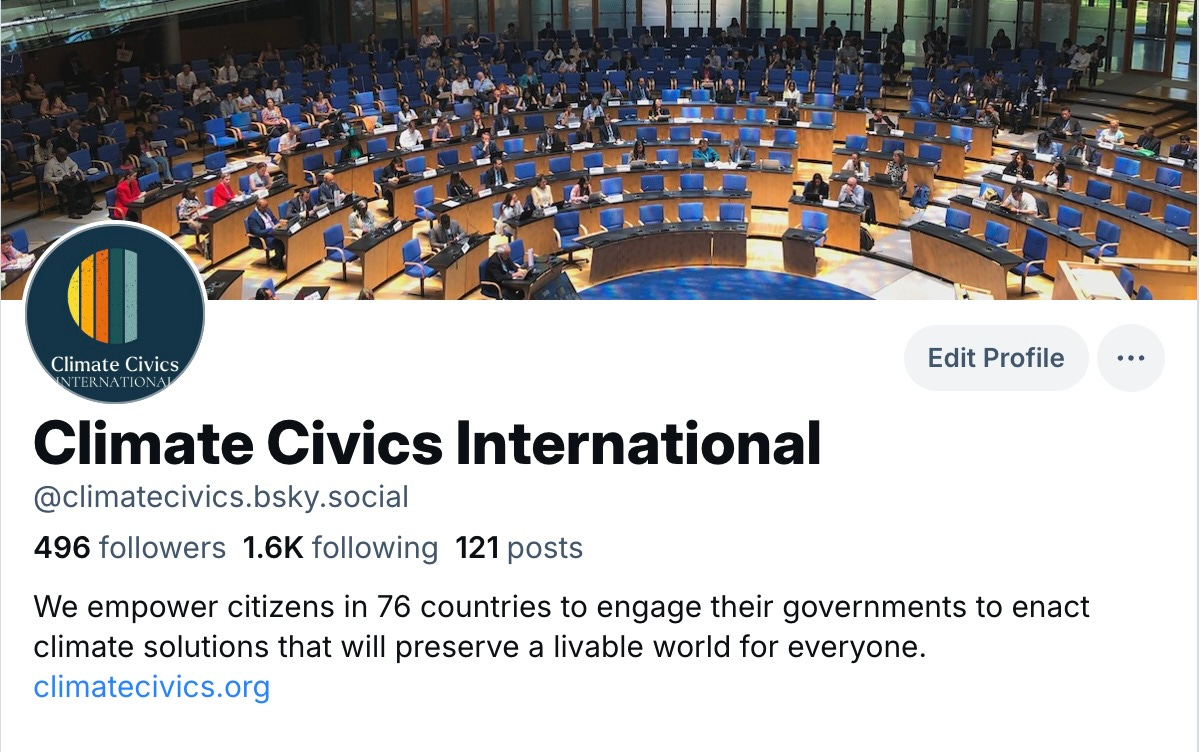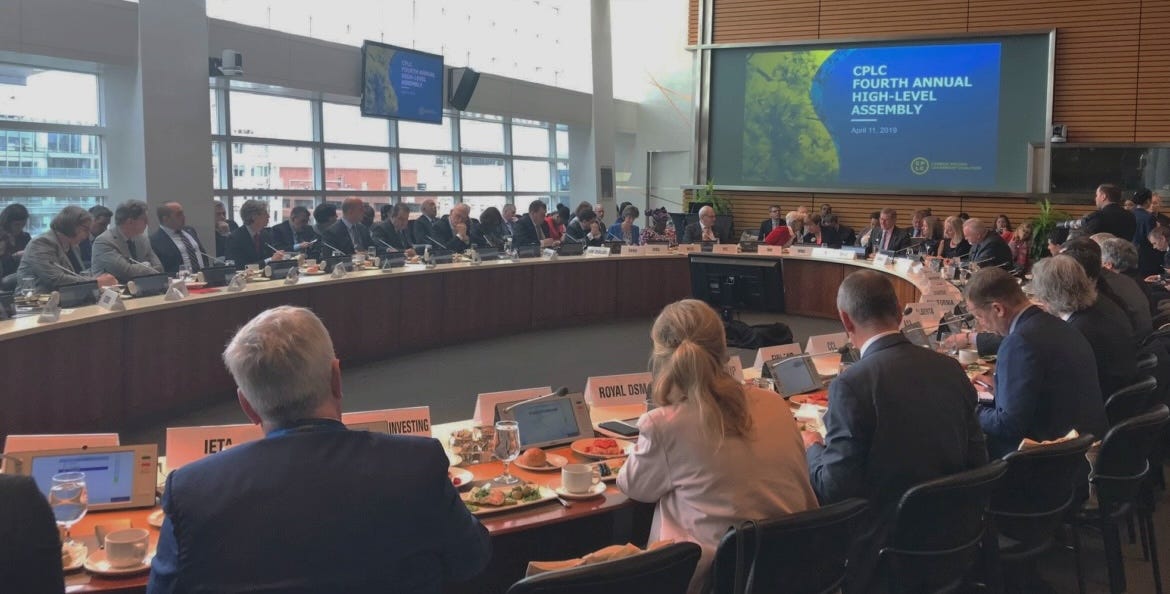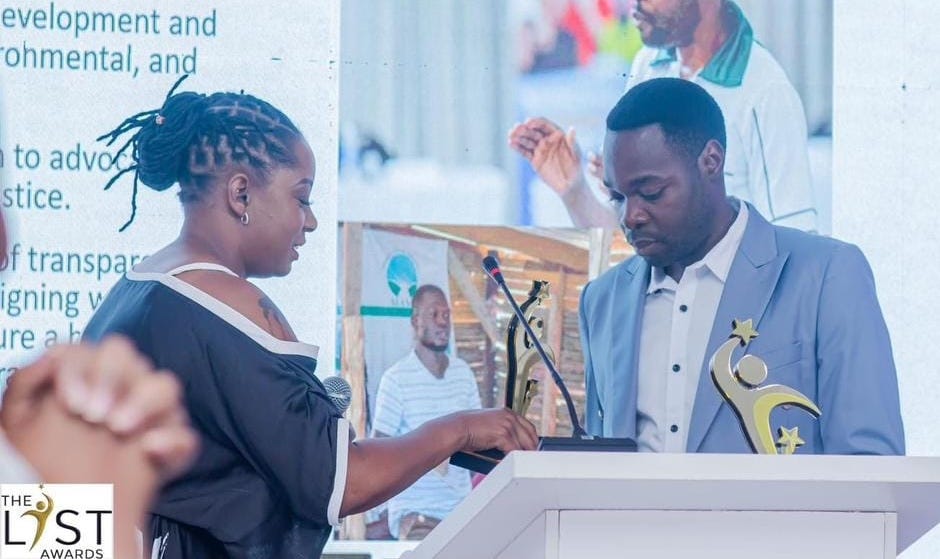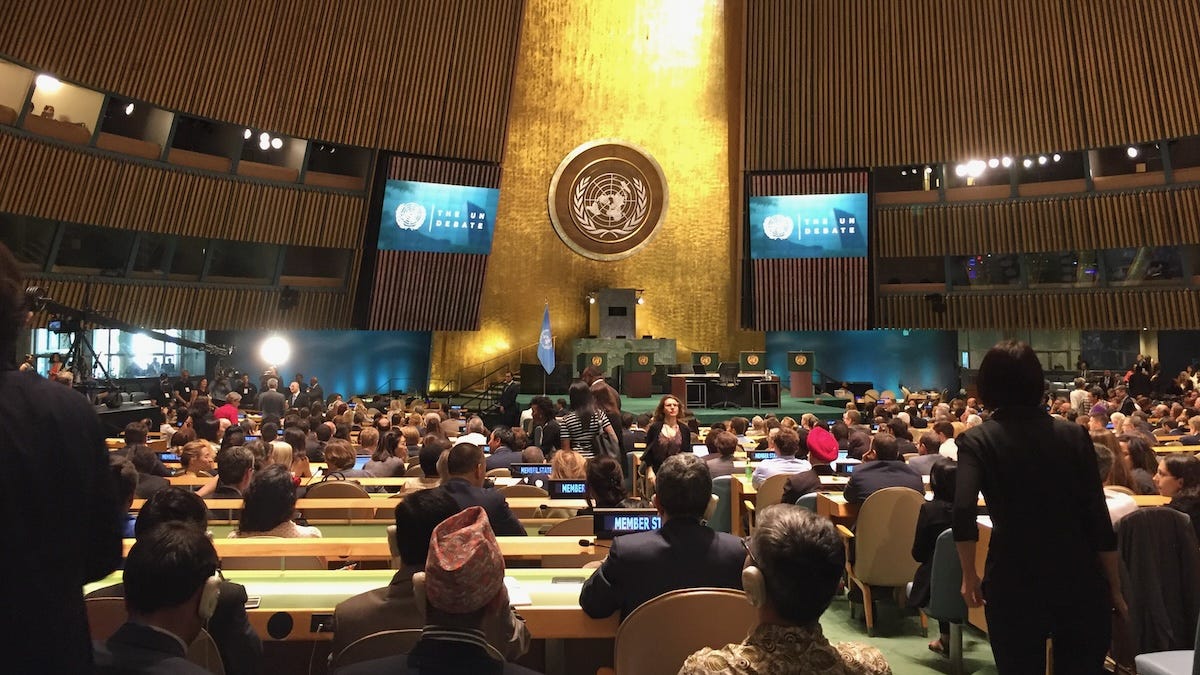How do we deliver climate justice?
NEWSLETTER, November 2024 — COP29 analysis: Much more is needed; COP29 side event: Agrifood finance to drive climate action; CCI Africa coordinator interviewed about COP29; Follow CCI on Bluesky
Who is responsible for the damage inflicted by climate change, and what should they contribute toward fixing the problem and repairing that damage? That is the question the International Court of Justice, the judicial arm of the United Nations, is now wrestling with. The concentration of heat-trapping carbon dioxide now stands at 420 parts per million, 50 percent higher than the 280 ppm that existed before the advent of the industrial revolution. Historically, the world’s wealthiest nations, which have benefited economically from the use of fossil fuels, have added the lion’s share of the additional CO2 now disrupting our climate, spreading worsening harm and cost. Poorer, less-developed countries have contributed the least to the problem, yet they have borne the brunt of the climate crisis, as low-lying island nations, for example, face the existential threat of being submerged in rising seas. This was the crux of the debate about climate finance at the COP29 climate conference in Azerbaijan last month, as most experts and economists agreed that at least $1.3 trillion annually would be needed for poorer nations to transition off fossil fuels and adapt to an increasingly inhospitable climate. The final amount agreed to, however, was $300 billion a year, which was met with great derision in the climate justice community. At some point, this yawning gap in funding will need to be closed. Otherwise, the commitments made to avert climate catastrophe will not be fulfilled, and a hellish future awaits us. Yes, this is about climate justice for the poor, but it is also a matter of survival for all.
COP29 analysis: Much more is needed
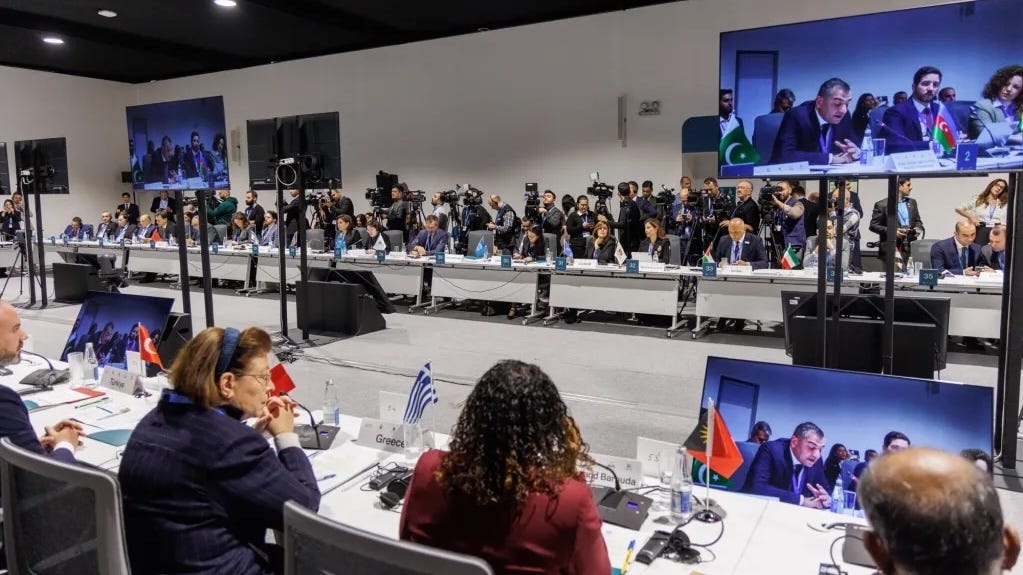
As COP29 concluded in Baku, Azerbaijan, last month, there was great disappointment in the amount of funding that wealthy nations committed — $300 billion annually — to give poor nations struggling with the impact of climate change and the transition away from fossil fuels. Many advocates hoped an agreement would be reached to provide $1.3 trillion each year for climate finance. The good news from Baku, however, is that changes were made to provide easier access to funding. Among those changes:
A new call for efforts to reduce “existing constraints, challenges, systemic inequities and barriers to access to climate finance”;
Expanding beyond multilateral development banks for catalytic funding assistance, grant-based, and debt-alleviating arrangements;
Emphasizing the need for “non-debt-inducing instruments”;
Increasing “highly concessional finance” generally and “grant financing” to SIDS and LDCs;
“Scaling up and prioritizing direct access”, which some read as opening up direct-to-community funding options, which is reinforced by “Increasing, as appropriate, support for locally led approaches and institutions, in particular for adaptation measures…”
In an analysis posted after COP29, CCI notes that the agreement in Baku “signals the start of work on the urgently needed acceleration of global climate action.” That acceleration must happen with the involvement of stakeholders at the local level. We must ensure that “more people have access to quality services and products that make their lives easier, improve affordability and clean development, and create opportunities for new local investment and job creation.”
COP29 side event: Agrifood finance to drive climate action
During COP29, Climate Civics International, the Good Food Finance Network and others co-hosted a side event on food and climate change — Agri-Food Finance and Enabling Policies to Drive Climate Action. The discussion focused on realigning public support for the agrifood sector to achieve climate goals and catalyze financial innovations to deliver climate finance to those leading on food systems. The importance of sustainability in food systems was highlighted by Myra Jackson with Earth Law Center and a board member of CCI. She said that even as we seek to find nutrition and provide for the health and wellbeing of 8 billion people, our approach to doing so is destroying nature’s ability to produce sufficient food reliably. She urged all to treat the planet as a living thing and to foster, honor, and act in service of the rights of nature.
The importance of enacting government policies to support climate-smart farming was emphasized by Dr. Michael Terungwa David, CCI Africa Coordinator and Founder of the Global Initiative for Food Security and Ecosystem Preservation. He underscored the need for consistency in civic action and engagement, sharing a personal account of his team’s persistent efforts to engage policymakers. Echoing the call for trust-building, he described relationship-building over time as a key lever for building political will and improving policy design and outcomes for affected communities.
CCI coordinator interviewed on COP29
During and after COP29, Dr. Michael Terungwa David, CCI regional coordinator for Africa, made the rounds for several TV interviews to offer his take on the climate conference. He made appearances on Joy TV in Ghana, Africa Independent Television in Nigeria, and Trust TV in Nigeria. In his interview on Trust TV, Mike expressed disappointment with the outcome at COP29, particularly the amount of climate finance that wealthy nations agreed to.
“Our hope was that we would get at least a trillion dollars. Unfortunately, we got $300 billion. This $300 billion is not real cash. It is still pledges, and it's going to be mobilized by the developed countries between now and 2035. So, for many of us, we will say the COP was a failed COP. There were a few other things we can say were good. The agreement was reached for carbon markets, and for the first time the COP also focused and had in its agenda adaptation, which before now many other COPs didn't really care about… Look at the issues around flooding in our country. Look at the issues around drought or dry spells. Look at the issues around heat waves and its impact on us, the impact on agriculture, the impact on our economy. We need to build resilience, and that's where adaptation falls. So, some progress was made on adaptation, but adaptation requires an enabler. Without money, you cannot adapt… Look at how much we pay in debt yearly. In the last year alone, African countries paid in debt about $163 billion. Why can't you forgive debt instead of promising money that we are not sure of when it will come. So, that is why a lot of us feel the COP was a failed COP.”
CCI COP29 delegation advocates for effective mobilization
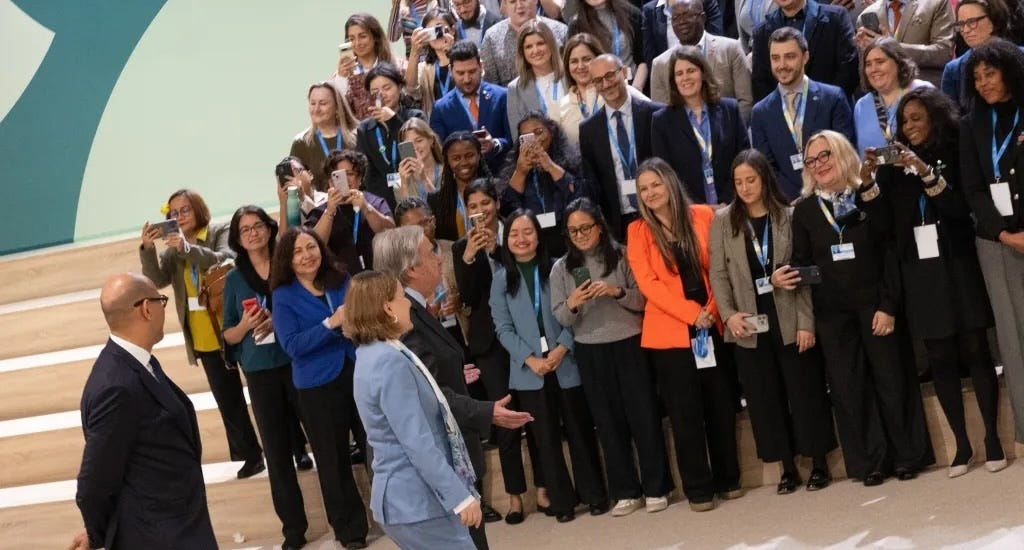
Climate Civics International made its presence felt at COP29 through our on-site delegation of participants and through off-site support with platforms like the People’s Pavilion. We had 13 delegates on the ground in Baku, including two from the US, four from Nigeria, three from Ghana, and one each from Cameroon, India, Japan, and Zambia. They joined negotiating sessions as observers, represented civil society networks, and supported national delegations, while joining or leading side events that brought critical substance into the COP29 landscape of policy discussion.
The People’s Pavilion, a digital platform for climate engagement and empowerment, allowed users to view COP-related events, join thematic discussions, attend webinars and trainings, and contribute local insights to international policy discussions, with support of VoLo Foundation and collaboration from a range of partners. The Pavilion made it easier for people who were not in attendance to witness events, join discussions, feed insights into the process, and engage with participants. During COP29, we live-streamed 323 events to 638 registered People’s Pavilion members; we estimate total engagement with streams posted in the People’s Pavilion at 11,141—an increase of 5% over last year.
You can learn more about CCI’s participation in COP29 in the report posted on our website.
Follow CCI on Bluesky
Growing discontent with the toxic environment on X (formerly known as Twitter) has led many people in the climate community to migrate to Bluesky, a social media platform that looks and feels much like the old Twitter but without the trolls and rude behavior found currently on X. The number of users on Bluesky has exploded since the U.S. election and now stands at 24 million, most of them coming at the expense of X. Most climate scientists and journalists have made the move, and elected officials are starting to join the migration. Climate Civics International has also joined Bluesky, and while we still have a presence on X, most of our posts and engagement will be found on Bluesky. If you like to keep abreast of climate news and engage with communities focused on your interests — political, cultural, academic or entertainment — we recommend signing up for Bluesky. Be sure to follow us.
Updates
Lobbying the World Bank: Starting on October 8, CCI volunteers from around the world have contacted their nations' directors at the World Bank in Washington, DC, to support the Carbon Pricing Leadership Coalition. We’ve generated letters in the following countries: Kenya, Nigeria, Malawi, Sierra Leone, The Gambia, Goma, Congo, South Sudan, United Kingdom, Ghana, Sweden, Canada, Australia, Panama and Romania.
Trends in Canada’s provincial elections: CCL Canada analyzed the results of recent provincial elections, and one interesting takeaway, especially for carbon pricing supporters, is that disinformation campaigns like “axe-the-tax” saw declining support. Learn more from their analysis here.
Zimbabwe CCI leader recognized for youth work: Jussa Kudherezera, the Director of the Manica Youth Assembly (MAYA) and CCI Leader in Mutare, Zimbabwe, received the Youth Impact Award last month from Identities Media. Jussa was recognized for his contributions to youth development in Manicaland. Over the years, he has successfully facilitated the planting of more than 13,000 trees in Mutare District, campaigned against drug and substance abuse, and established school clubs focused on environmental initiatives.
Upcoming events
Dec. 9: A virtual meeting of the Climate Value Exchange will focus on implementation of actions that support non-market cooperative climate action to build climate value in the everyday economy. Learn more.
Dec. 10: At the December virtual meeting of Climate Civics International leaders, affiliated local chapters, and volunteers, we will hear reports from local engagement activities and discuss plans for 2025. Share your Climate Civics advocacy story here.
Dec. 11: Join us for a debrief on the COP29 outcomes at this virtual meeting, hosted by CCI through the People’s Pavilion, to discuss what is needed to enhance the speed, scale, ambition, and efficacy of global cooperation on climate crisis response. Learn more.
Jan. 15: At the first Earth Diplomacy Leadership session of 2025, we will bring together climate leaders and negotiators with stakeholders and learners, to explore the key challenges and opportunities facing negotiators in 2025. Learn more.




